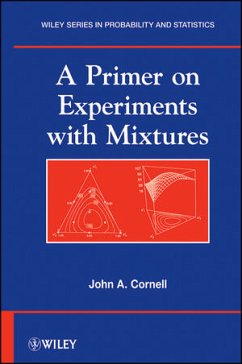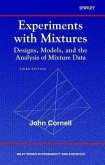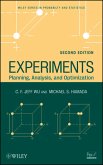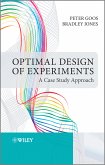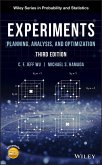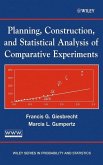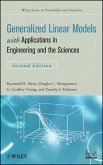The concise yet authoritative presentation of key techniques for basic mixtures experiments Inspired by the author's bestselling advanced book on the topic, A Primer on Experiments with Mixtures provides an introductory presentation of the key principles behind experimenting with mixtures. Outlining useful techniques through an applied approach with examples from real research situations, the book supplies a comprehensive discussion of how to design and set up basic mixture experiments, then analyze the data and draw inferences from results. Drawing from his extensive experience teaching the topic at various levels, the author presents the mixture experiments in an easy-to-follow manner that is void of unnecessary formulas and theory. Succinct presentations explore key methods and techniques for carrying out basic mixture experiments, including: * Designs and models for exploring the entire simplex factor space, with coverage of simplex-lattice and simplex-centroid designs, canonical polynomials, the plotting of individual residuals, and axial designs * Multiple constraints on the component proportions in the form of lower and/or upper bounds, introducing L-Pseudocomponents, multicomponent constraints, and multiple lattice designs for major and minor component classifications * Techniques for analyzing mixture data such as model reduction and screening components, as well as additional topics such as measuring the leverage of certain design points * Models containing ratios of the components, Cox's mixture polynomials, and the fitting of a slack variable model * A review of least squares and the analysis of variance for fitting data Each chapter concludes with a summary and appendices with details on the technical aspects of the material. Throughout the book, exercise sets with selected answers allow readers to test their comprehension of the material, and References and Recommended Reading sections outline further resources for study of the presented topics. A Primer on Experiments with Mixtures is an excellent book for one-semester courses on mixture designs and can also serve as a supplement for design of experiments courses at the upper-undergraduate and graduate levels. It is also a suitable reference for practitioners and researchers who have an interest in experiments with mixtures and would like to learn more about the related mixture designs and models.
Dieser Download kann aus rechtlichen Gründen nur mit Rechnungsadresse in A, B, BG, CY, CZ, D, DK, EW, E, FIN, F, GR, HR, H, IRL, I, LT, L, LR, M, NL, PL, P, R, S, SLO, SK ausgeliefert werden.
Hinweis: Dieser Artikel kann nur an eine deutsche Lieferadresse ausgeliefert werden.

